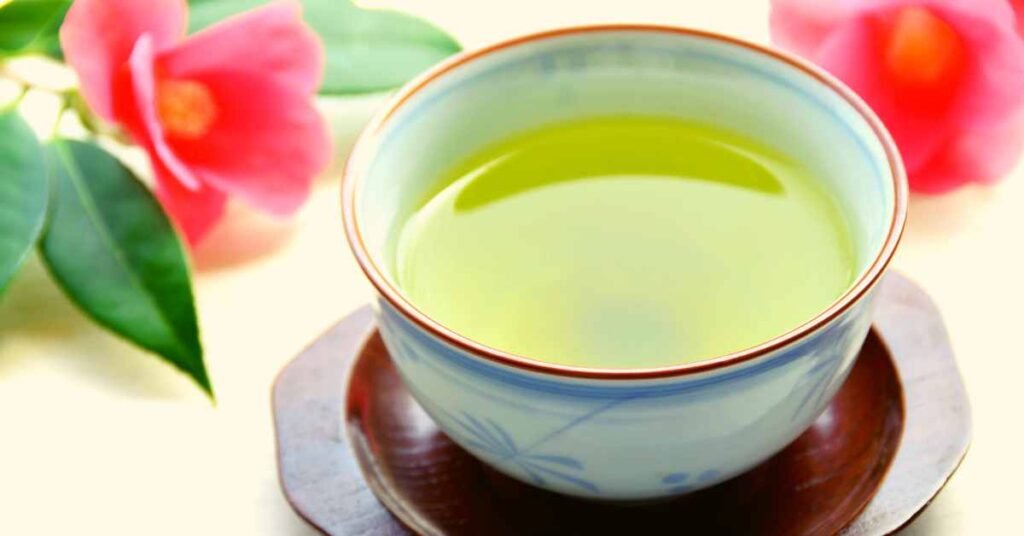Celiac disease, a chronic autoimmune condition triggered by the ingestion of gluten, affects millions of people worldwide.
Individuals with celiac disease often experience a range of symptoms, including digestive discomfort, fatigue, and malabsorption of nutrients.
While a strict gluten-free diet is the primary treatment, emerging research suggests that certain types of tea may offer additional support in alleviating symptoms and promoting overall well-being for those with celiac disease.
The Anti-Inflammatory Power of Green Tea

Green tea, derived from Camellia sinensis leaves, has long been celebrated for its potent health benefits.
Packed with antioxidants, green tea possesses anti-inflammatory properties that may help ease the inflammation associated with celiac disease.
Polyphenols, such as epigallocatechin gallate (EGCG), are prominent in green tea and have been linked to reduced inflammation in the gut.
In a study published in the Journal of Gastroenterology and Hepatology, researchers found that green tea consumption was associated with a decrease in markers of inflammation in the intestinal lining.
While further research is needed to establish a direct link between green tea and celiac disease management, incorporating this beverage into a gluten-free lifestyle may contribute to overall well-being.
Chamomile Tea: A Calming Companion
Beyond its ability to induce relaxation, chamomile tea may offer relief from some gastrointestinal symptoms associated with celiac disease.
The anti-inflammatory and anti-spasmodic properties of chamomile can help soothe the digestive tract, reducing discomfort and bloating.
Research published in the Molecular Medicine Reports suggests that chamomile may inhibit the production of pro-inflammatory molecules, providing potential relief for individuals with inflammatory conditions like celiac disease.
Enjoying a cup of chamomile tea after meals or during moments of stress may contribute to a more comfortable digestive experience.
Peppermint Tea: Easing Digestive Woes

Peppermint tea, derived from the leaves of the Mentha piperita plant, has long been lauded for its digestive benefits.
The menthol in peppermint has a relaxing effect on the muscles of the gastrointestinal tract, potentially easing symptoms such as abdominal pain and bloating.
A study published in the Journal of Gastroenterology investigated the effects of peppermint oil on gastrointestinal symptoms, including those associated with irritable bowel syndrome (IBS).
While celiac disease and IBS are distinct conditions, they share some common symptoms.
The study found that peppermint oil reduced abdominal pain and improved overall well-being, suggesting that peppermint tea may offer similar benefits for individuals with celiac disease.
Ginger Tea: A Soothing Brew
Ginger tea, made from the rhizome of the Zingiber officinale plant, is renowned for its anti-inflammatory and anti-nausea properties.
For individuals with celiac disease who may experience nausea or indigestion, ginger tea can be a soothing and flavorful choice.
Research published in the European Journal of Gastroenterology and Hepatology highlights ginger’s potential in reducing inflammation and enhancing gut health.
While more studies specifically focused on celiac disease are needed, the anti-inflammatory nature of ginger suggests that incorporating ginger tea into a gluten-free diet may contribute to overall digestive comfort.
Turmeric Tea: Harnessing Curcumin’s Potential

Turmeric, a golden spice derived from the Curcuma longa plant, contains a powerful compound called curcumin.
Known for its anti-inflammatory and antioxidant properties, curcumin has shown promise in supporting digestive health.
A study in the Journal of Medicinal Food explored the effects of curcumin on inflammatory bowel disease (IBD), a condition that shares some similarities with celiac disease.
The study found that curcumin exhibited anti-inflammatory effects and helped regulate the immune response in the gut.
While more research is needed to directly link turmeric tea to celiac disease management, the potential benefits of curcumin make turmeric tea an intriguing option for those seeking natural support.
Final Word
While a strict gluten-free diet remains the cornerstone of celiac disease management, incorporating certain types of tea into one’s daily routine may provide additional support in alleviating symptoms and promoting overall well-being.
Green tea, chamomile tea, peppermint tea, ginger tea, and turmeric tea all offer unique properties that can contribute to a more comfortable and soothing experience for individuals with celiac disease.
It’s essential to consult with a healthcare professional before making significant changes to your diet, especially if you have a medical condition like celiac disease.
Tea should be seen as a complementary and supportive measure rather than a replacement for medical advice and treatment.
Embracing a holistic approach that includes a gluten-free diet, proper medical management, and the incorporation of soothing teas may empower individuals with celiac disease to enhance their overall quality of life.
MEDICAL DISCLAIMER
Itsnevernotteatime.com cannot and does not contain medical/health advice. The medical/health information is provided for general and educational purposes only and is not a substitute for professional advice.




